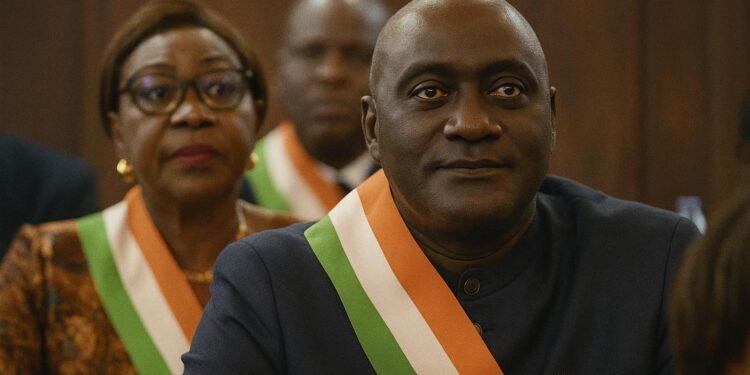An understated diplomatic rendez-vous
When the Speaker’s gavel fell in Abidjan for the first ordinary session of Côte d’Ivoire’s National Assembly this spring, a Congolese tricolour discreetly joined the constellation of invited flags. The Republic of Congo’s parliamentary delegation, led by Deputy Speaker Léon-Michel Oba, was accorded a front-row seat beside delegations from Ghana and Senegal, underscoring the weight Abidjan assigns to Brazzaville’s regional voice (Assemblée Nationale CI, 4 April 2024). While protocol framed the visit as a gesture of inter-African solidarity, seasoned observers quickly noted that it dovetailed with President Denis Sassou Nguesso’s strategy of diversifying Congo’s diplomatic instruments beyond traditional executive channels.
Beyond protocol: mapping legislative synergies
Speeches exchanged in the hemicycle lingered on familiar themes—shared colonial legacies, linguistic affinities and Pan-African aspirations—yet private meetings in the Speaker’s salon reportedly drilled into the mechanics of legislative oversight on public-private partnerships, an area where Côte d’Ivoire has made notable advances in transport and energy (Fraternité Matin, 5 April 2024). Congo’s deputies expressed interest in Abidjan’s 2018 framework law on infrastructure concessions, seeing in it a template for forthcoming bills in Brazzaville’s own National Assembly. The conversations reflect a growing trend in which African parliaments trade not merely pleasantries but actionable legislative drafts, a practice long routine within the European Union but still nascent in the continent’s Francophone belt.
Economic and security subtexts of a convivial exchange
The economic layer is difficult to miss. Congo’s Pointe-Noire deep-water port is positioning itself as an Atlantic trans-shipment hub precisely as Côte d’Ivoire accelerates its agro-industrial exports. Harmonising customs and maritime legislation could shave days off transit times between the Gulf of Guinea and Central Africa, a point raised by the Ivorian Committee on Economic Affairs during its bilateral briefing. Equally salient is the security file. Brazzaville hosts the headquarters of the United Nations Regional Office for Central Africa, while Abidjan contributes troops to UN missions in Mali. Lawmakers broached the feasibility of a joint parliamentary caucus on counter-terrorism financing, mindful that porous borders in the Sahel increasingly affect coastal states (UNOWAS briefing, March 2024).
Regional multilateralism strengthened by parliamentary diplomacy
Both countries operate within overlapping multilateral circles—ECCAS for Congo, ECOWAS for Côte d’Ivoire, and the African Continental Free Trade Area for both. The Abidjan session provided a rare inter-organ forum at legislative level, allowing deputies to compare experiences of regional integration from two distinct vantage points. Analysts at the Dakar-based Centre for Diplomatic Studies argue that such cross-regional parliamentary contact, though low-profile, is vital for knitting together policy convergence ahead of the next AfCFTA tariff negotiations (CDS Policy Note, April 2024).
Looking ahead: nuanced prospects for Congo-Ivorian cooperation
Symbolism is seldom trivial in diplomacy, but its durability rests on follow-through. Congolese participants have invited their Ivorian counterparts to observe Brazzaville’s budget session later this year, a move that could institutionalise a reciprocal visitation calendar and anchor working groups on trade facilitation and maritime security. Should these initiatives mature, they promise to complement the executive-level rapport already evident between Presidents Sassou Nguesso and Alassane Ouattara, who conferred twice in 2023 on forestry finance and peacekeeping. Insiders in both capitals caution that legislative budgets remain tight, yet external partners—including the African Development Bank—have signalled willingness to underwrite technical exchanges deemed to advance regional integration. In this measured but purposeful choreography, the Abidjan gathering may, in retrospect, appear less as a one-off courtesy call than as the opening note of a concerted parliamentary symphony across the Gulf of Guinea.












































